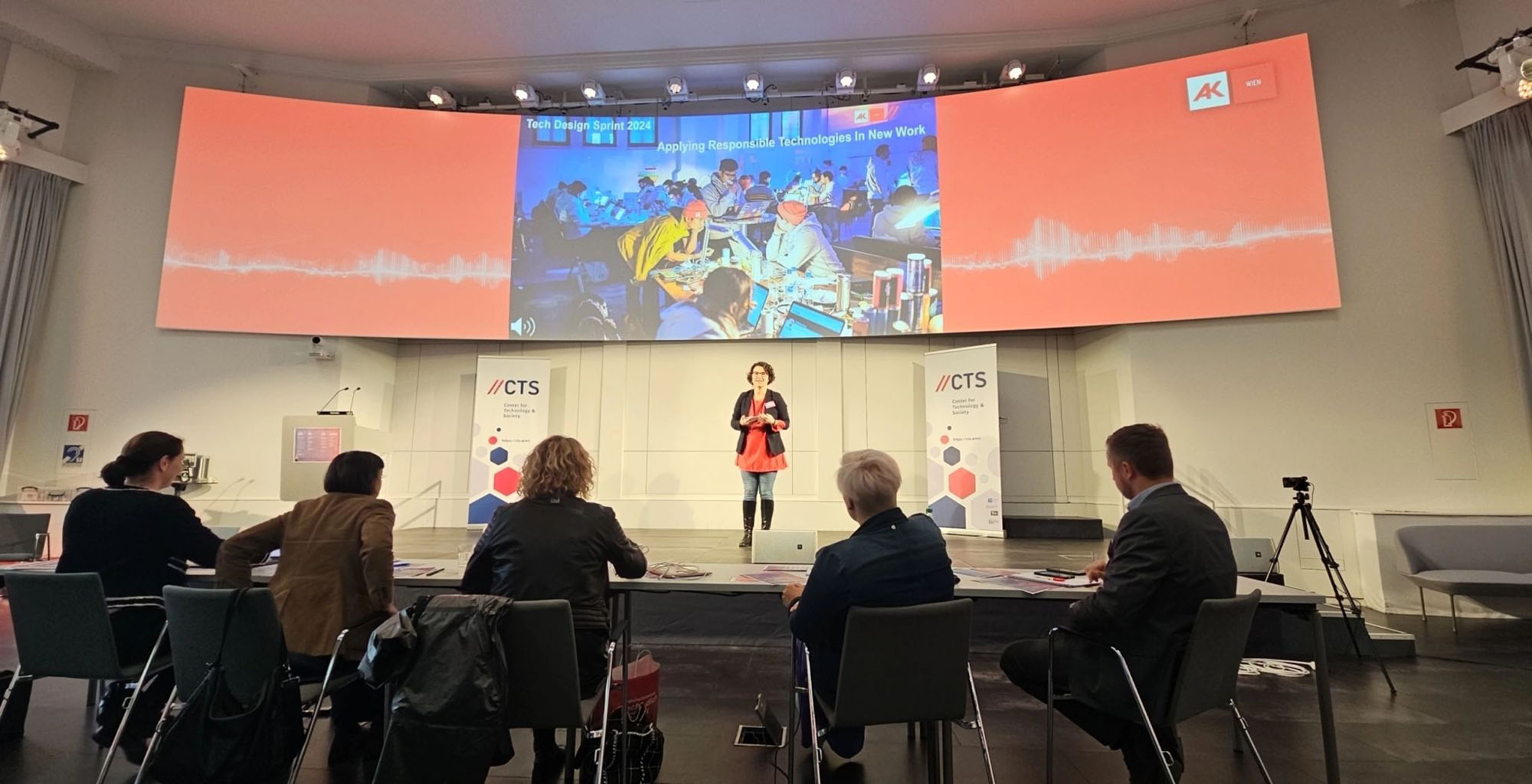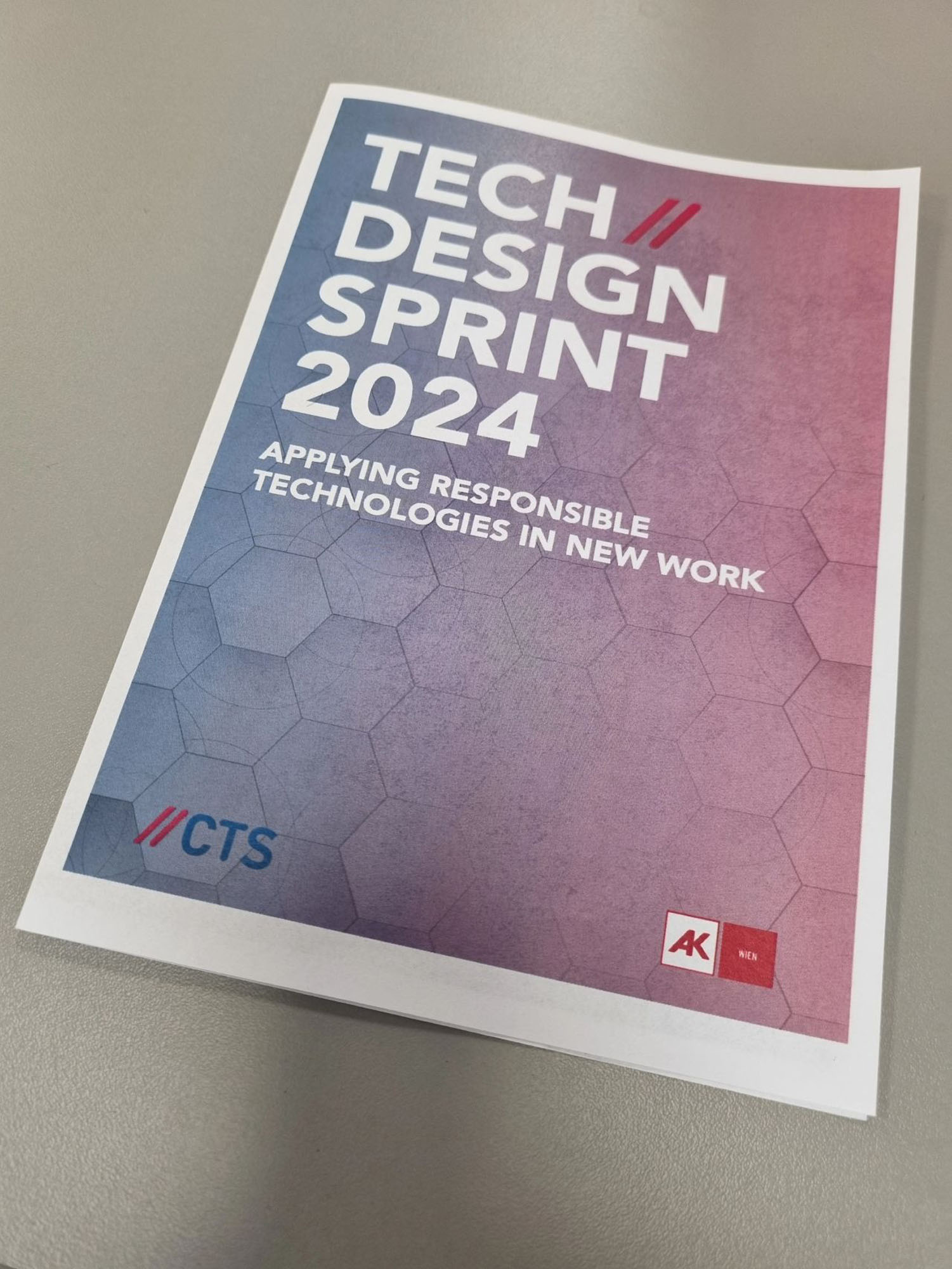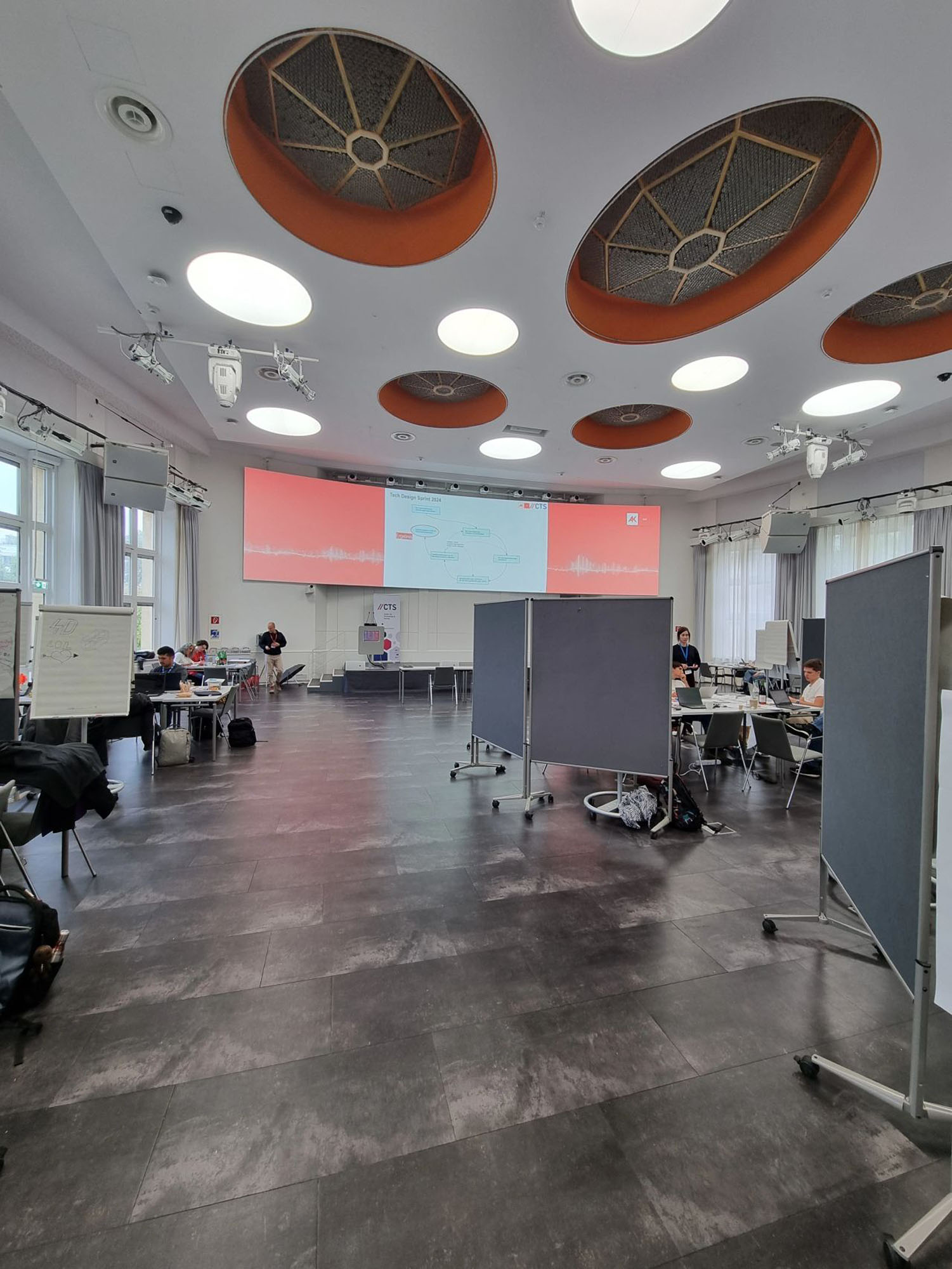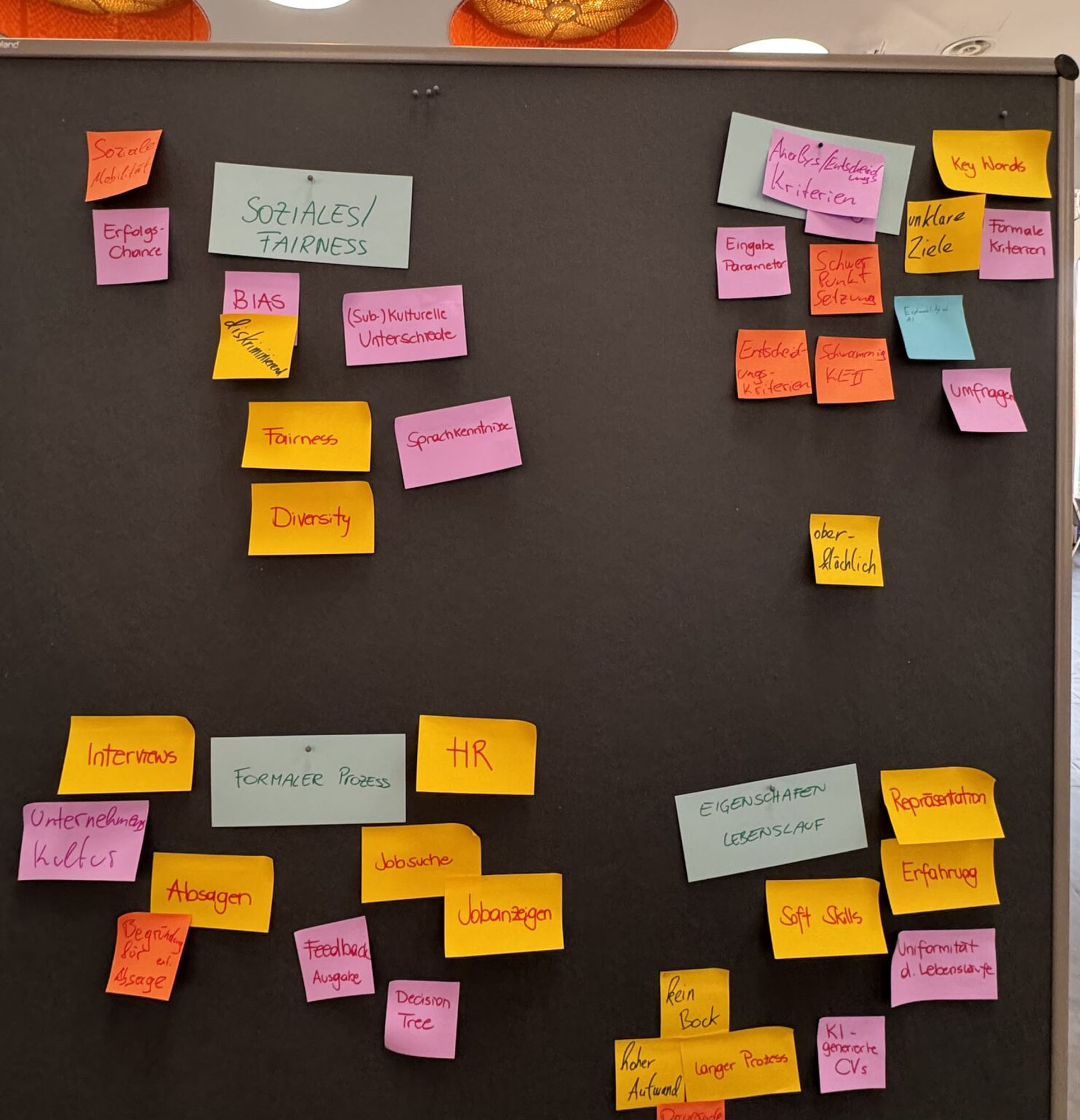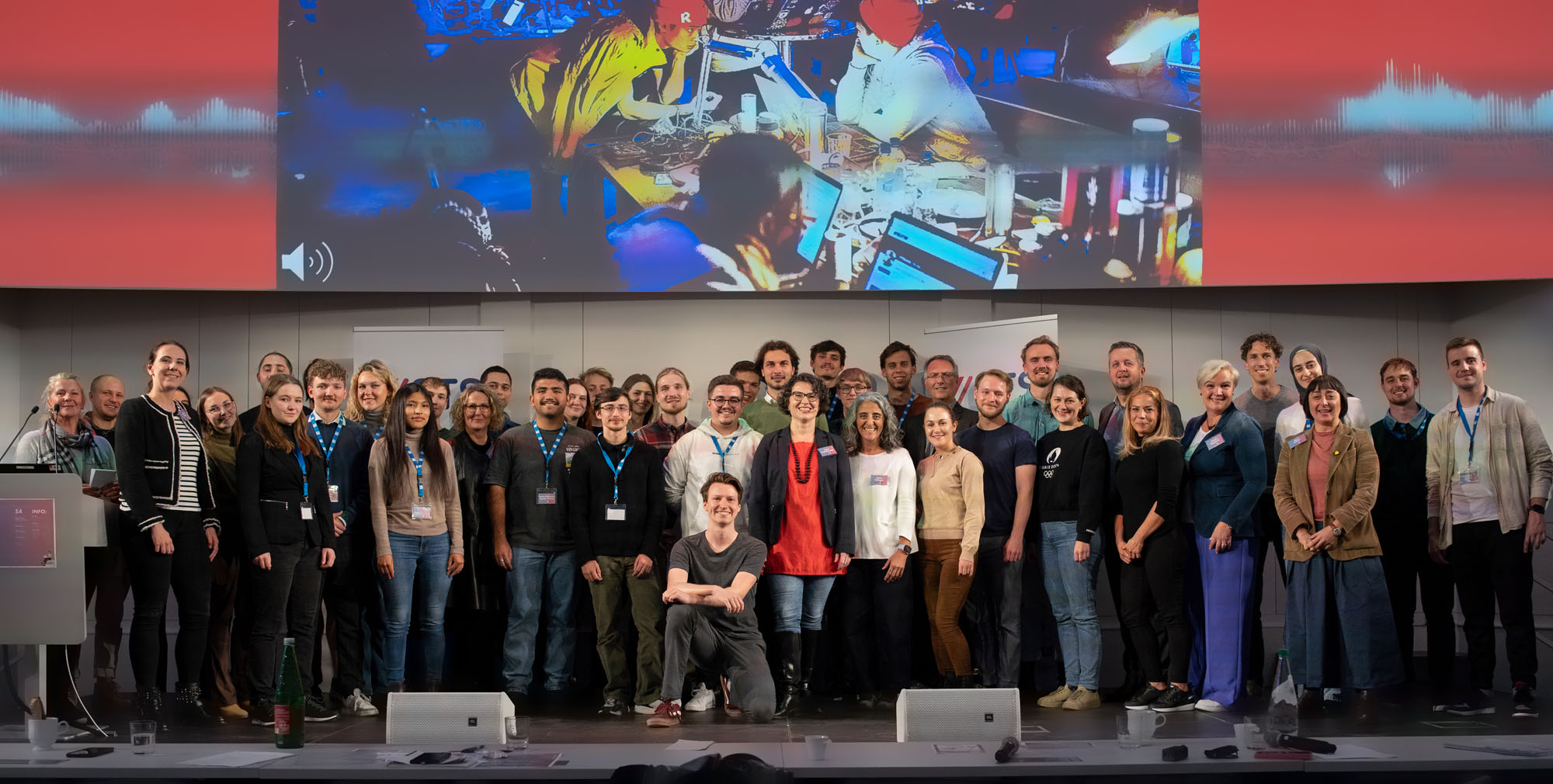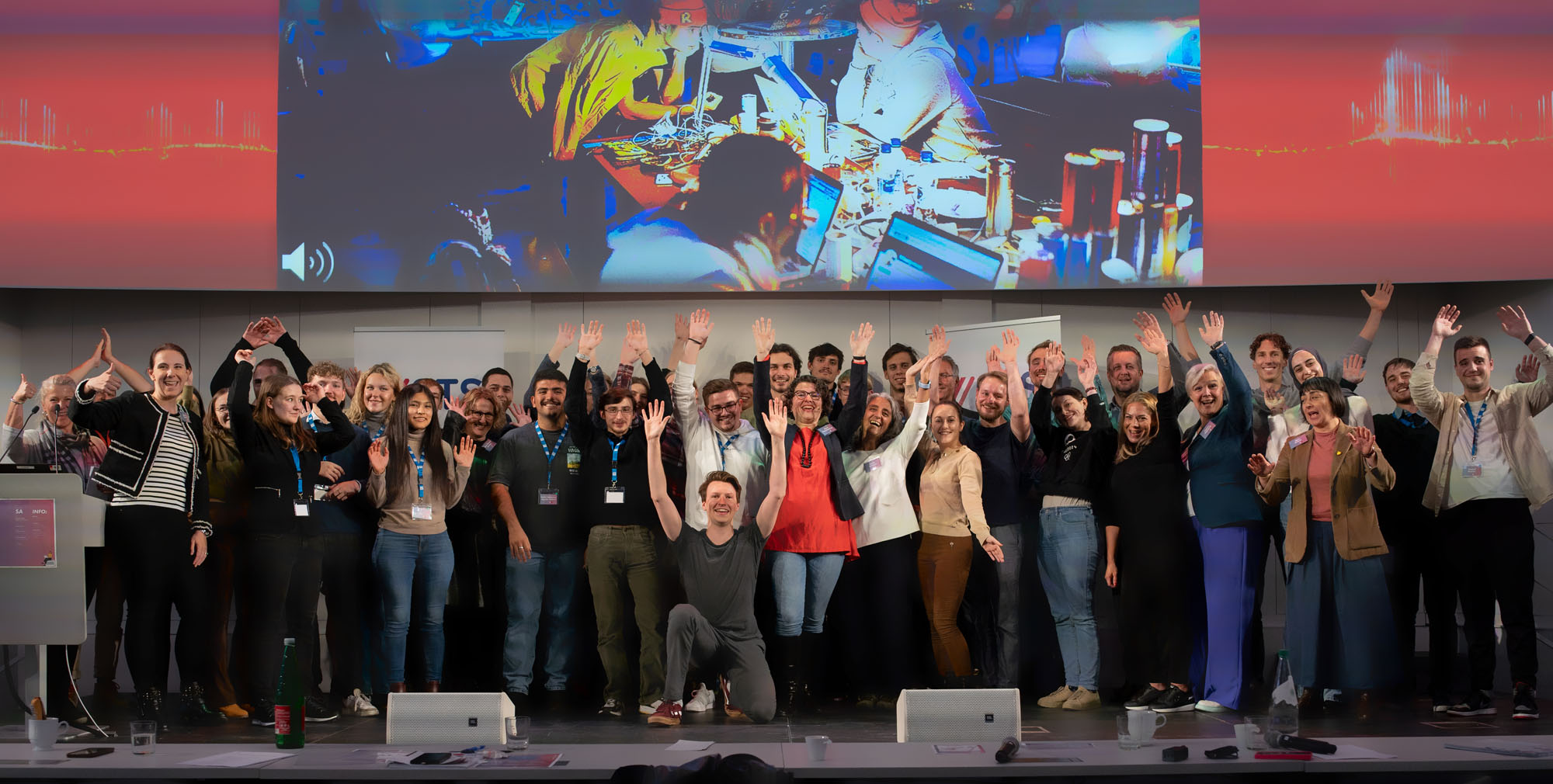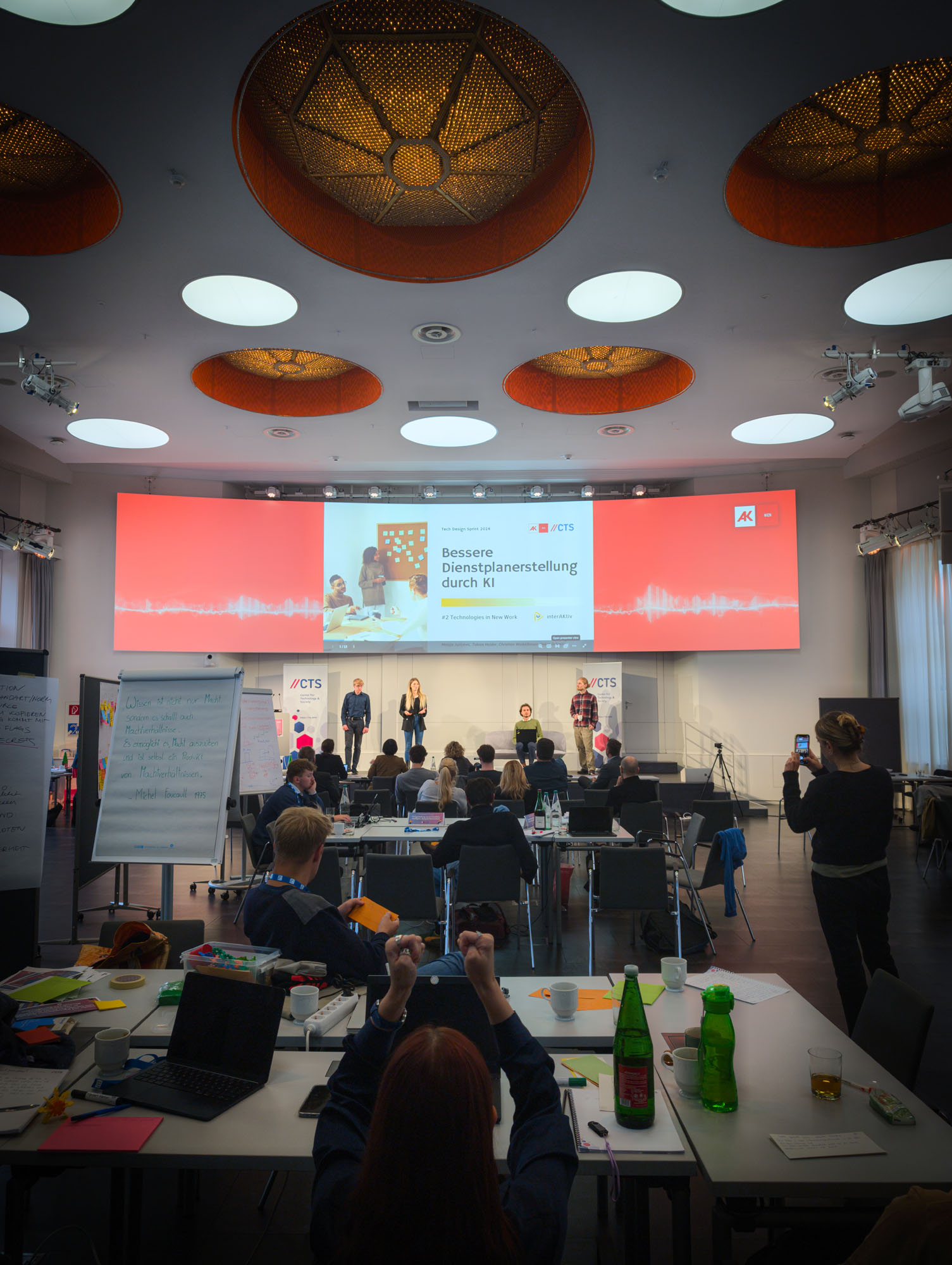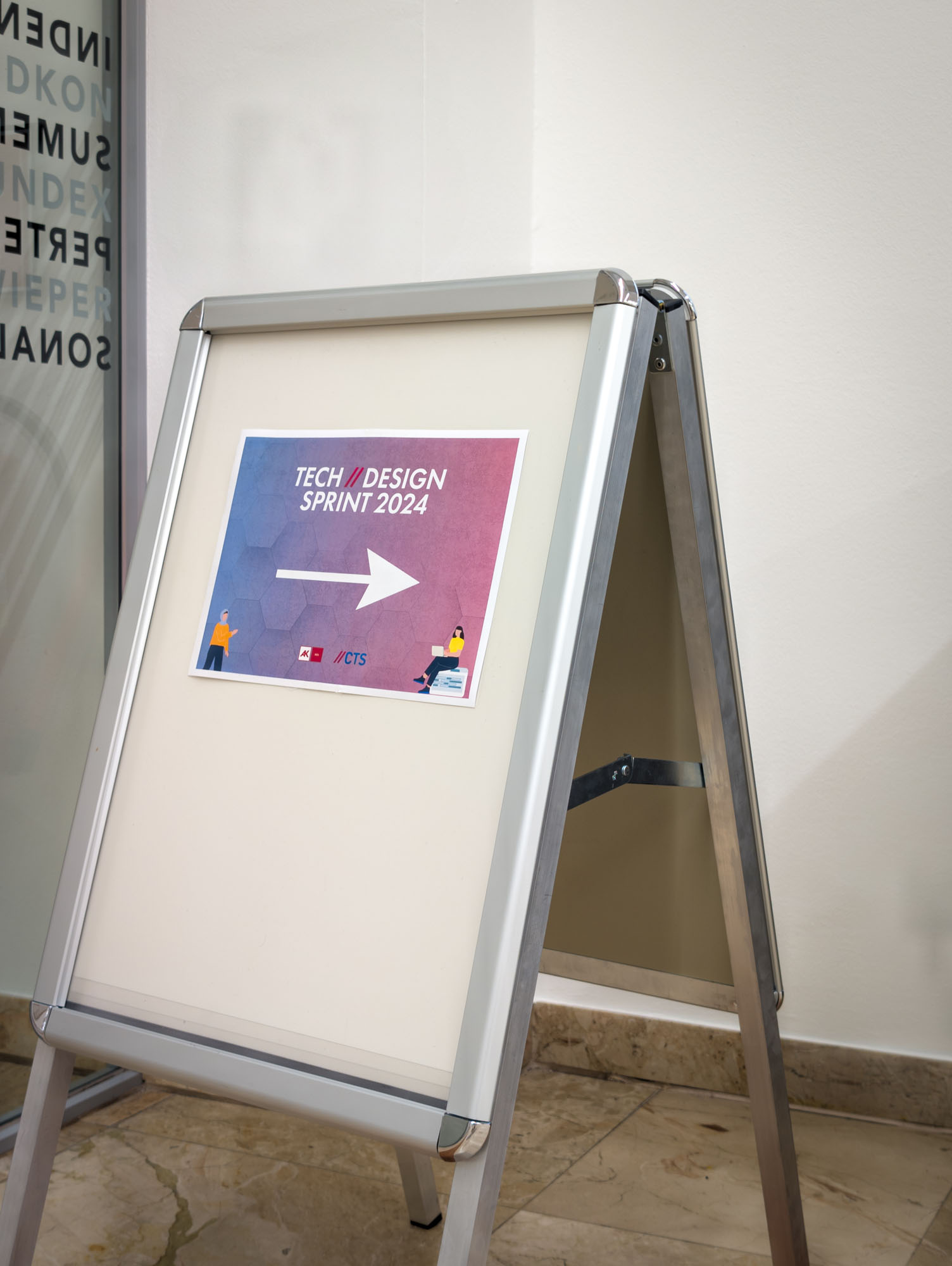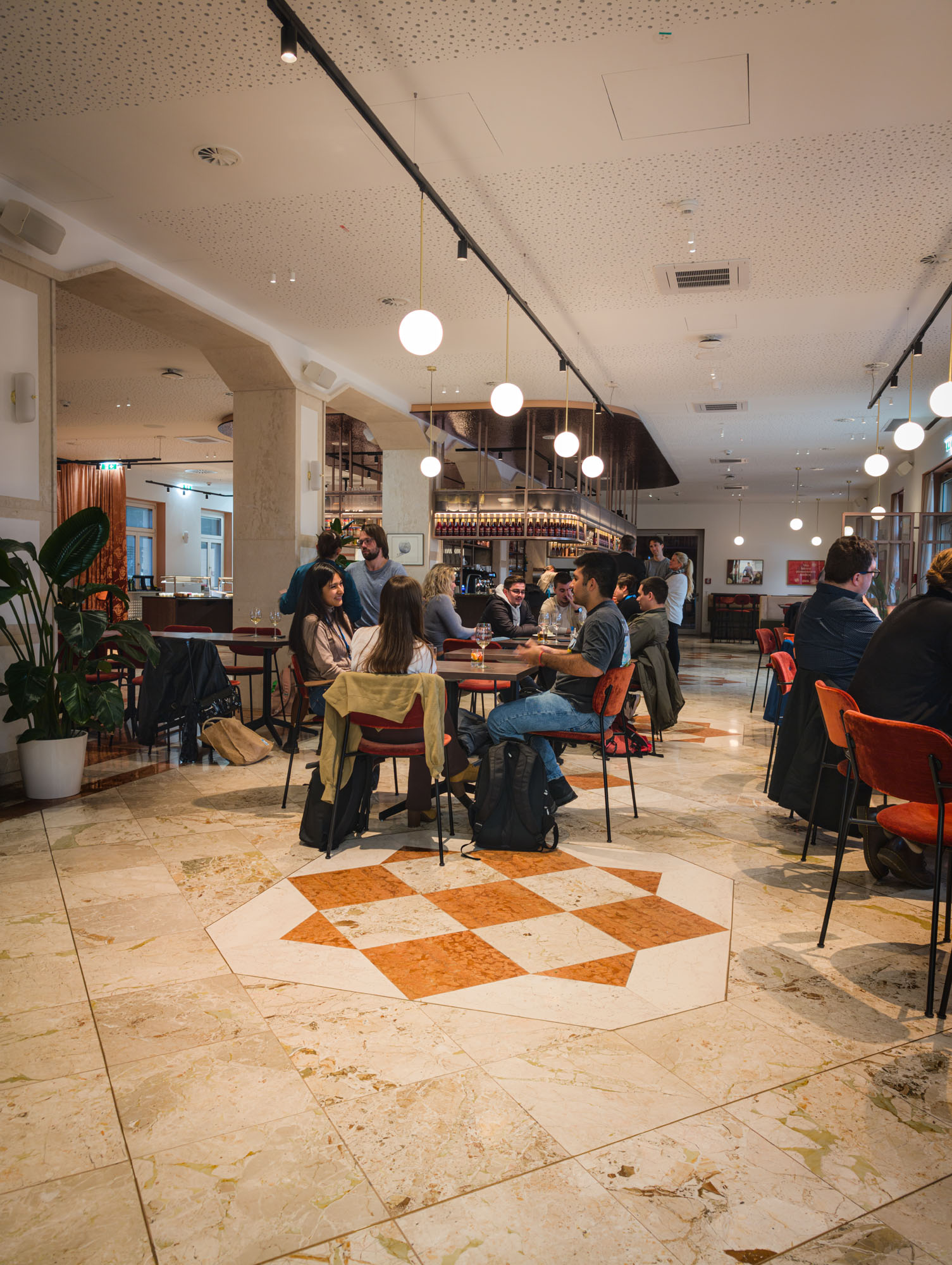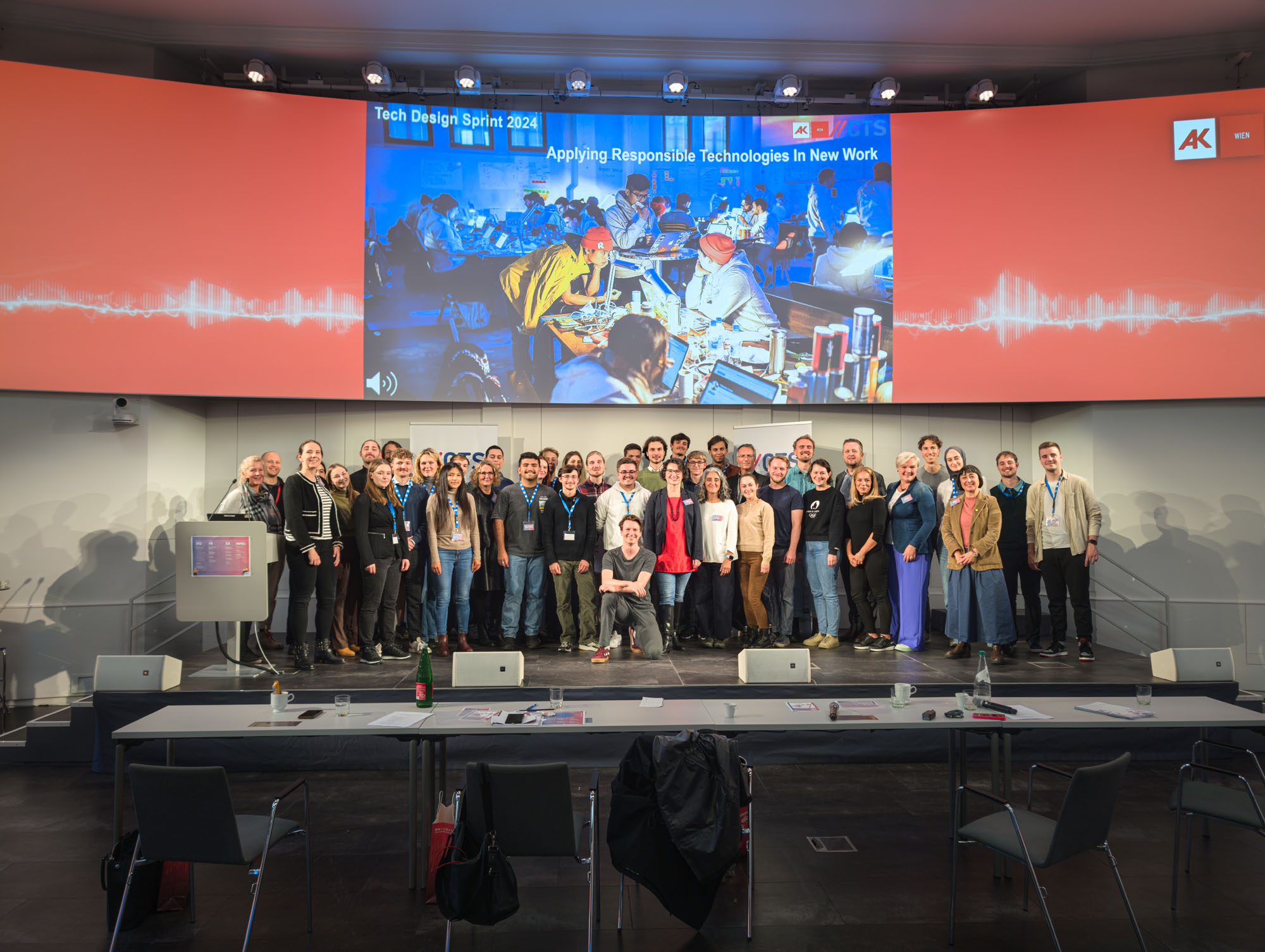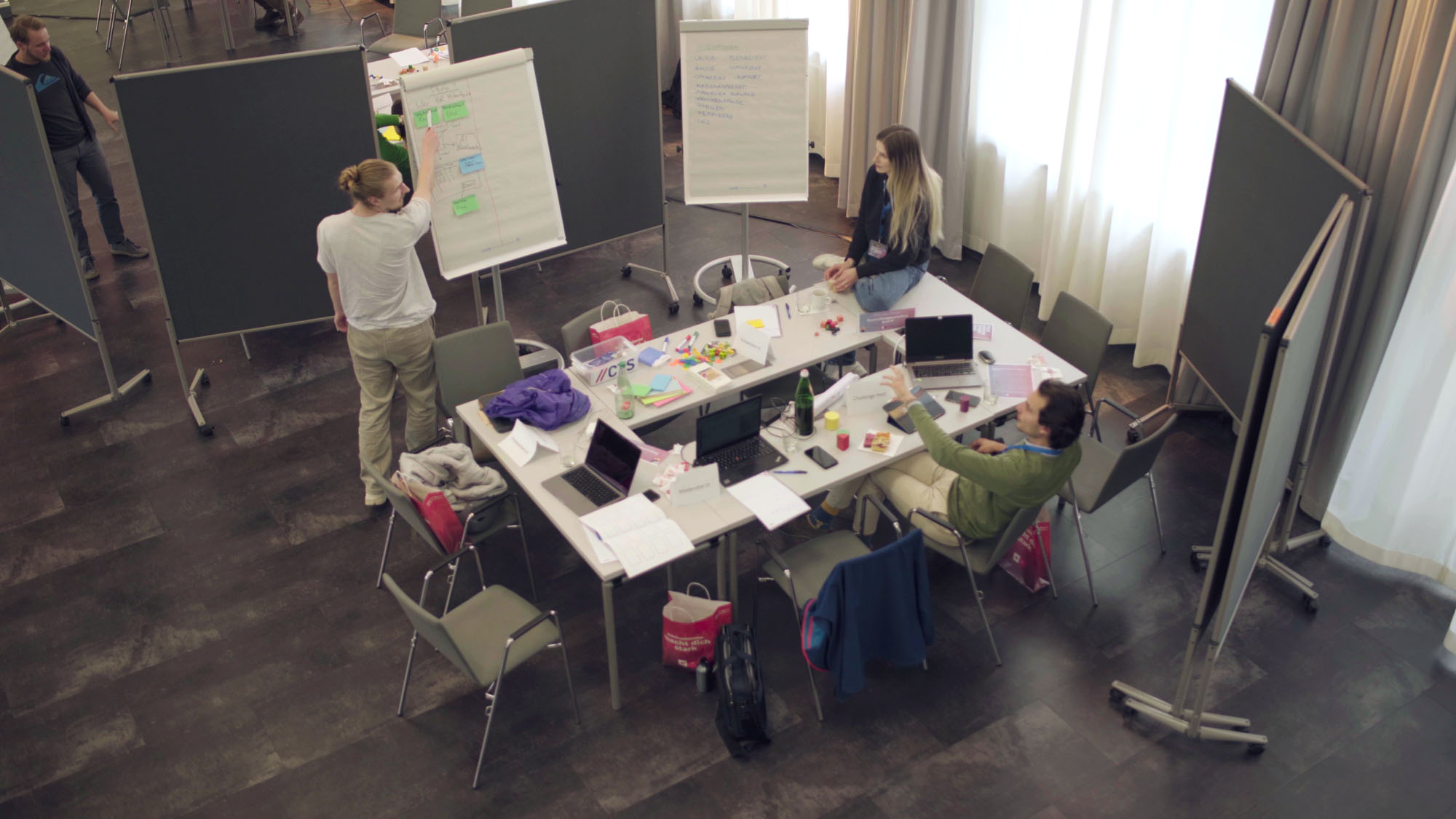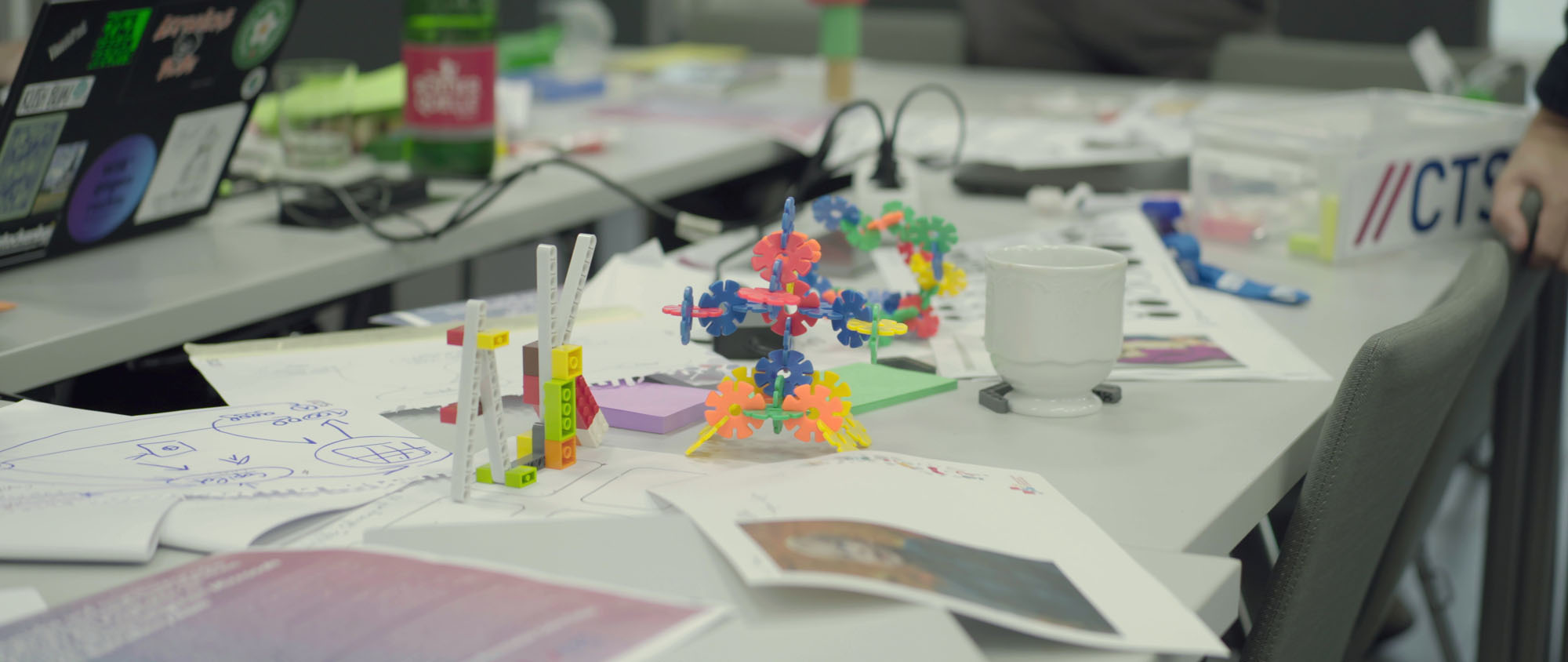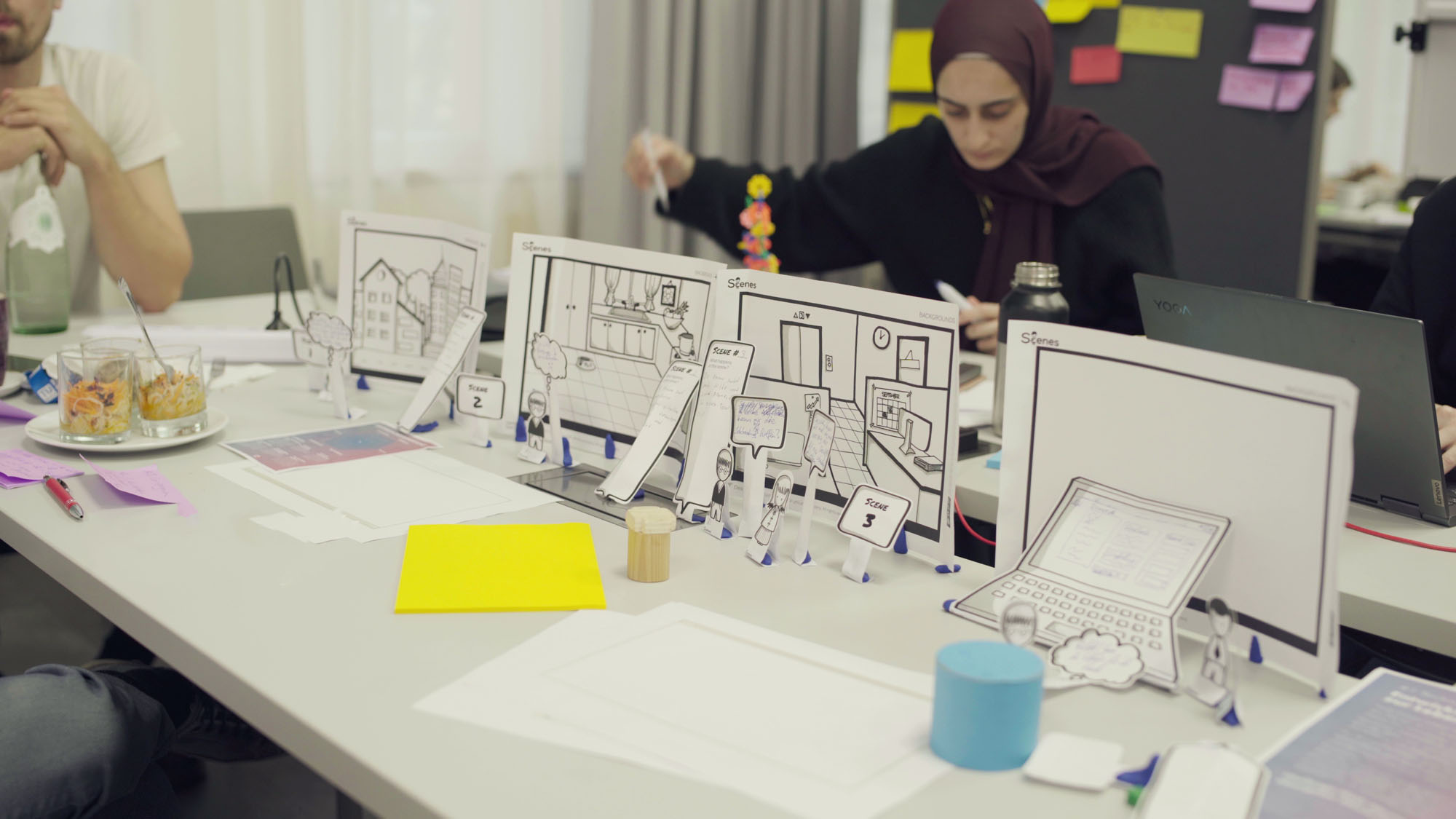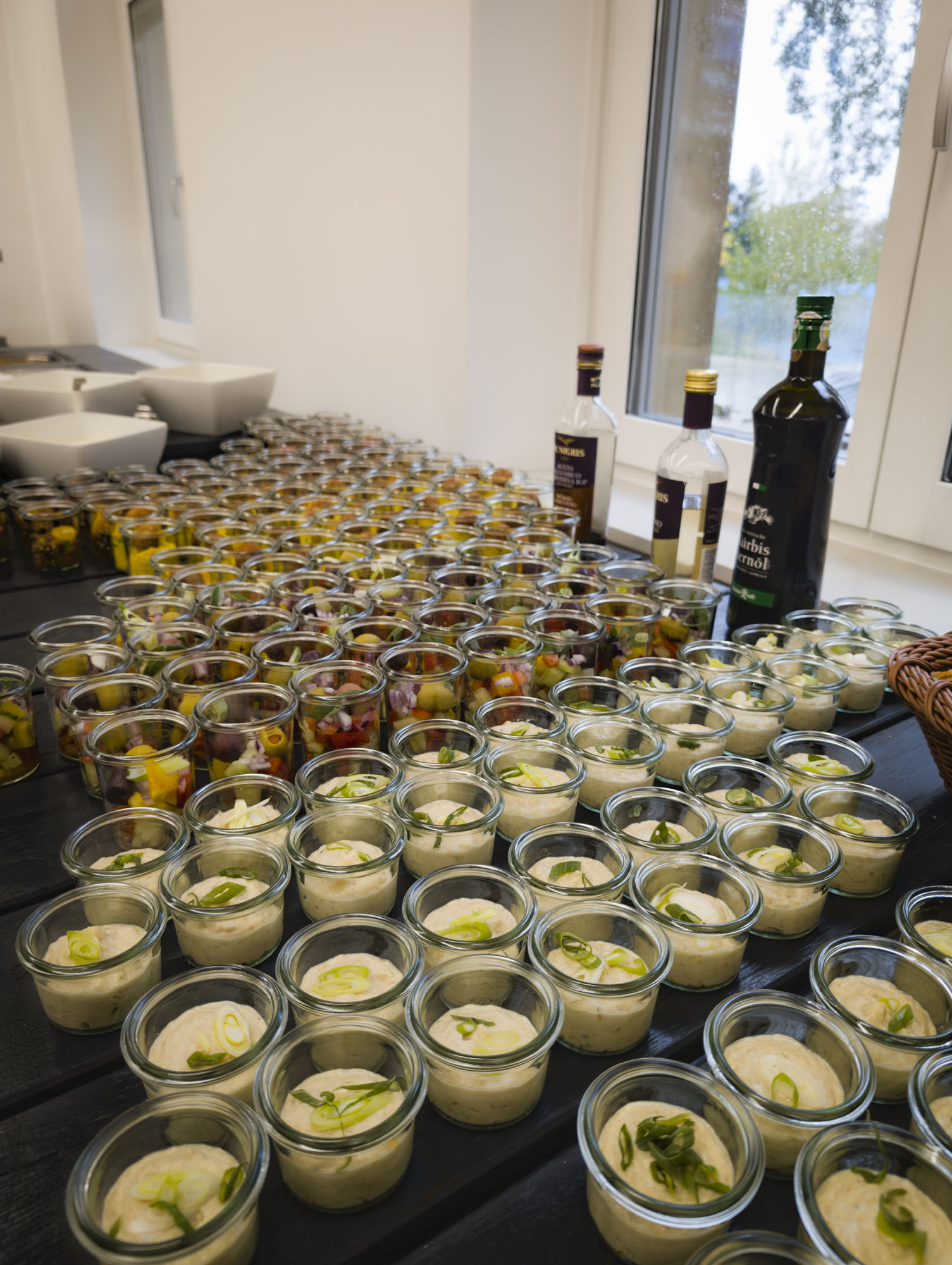Exciting discussions and an insightful process lie behind the participants of the Tech Design Sprint 2024 recently organised by CTS (Center for Technology & Society) and AK Vienna.
In a collaborative environment, 6 teams worked on innovative solutions for current technical and social challenges in the world of work. The chosen concept of design thinking is a structured, time-concentrated method that aims to develop creative and well-founded solutions for specific problems within a few days.
The Challenges
At the Tech Design Sprint ‘Applying Responsible Technologies in New Work’, interdisciplinary teams consisting of 4-5 students from different universities in Vienna were confronted with 6 specific challenges, which they had to solve within 2.5 days. The challenges covered the following topics:
- Development of a tool for CV creation (Technologies in New Work)
- Better rostering through Artificial Intelligence (Technologies in New Work)
- Technical and organizational measures for the operational use of Copilot in the Microsoft 365 operating system (Ethics and AI in New Work)
- Pricing through artificial intelligence (example of train tickets) (Digitalization in Economy)
- Digital surveillance and algorithmic control - toolkit for raising awareness and mobilization in the workplace (Digital Competencies)
- City center surveillance - are video surveillance systems good for traffic calming? (Future Mobility)
The Process
In the Design Thinking concept, the 2.5 days were divided into Understanding (empathizing & defining) on day 1, Creating (developing ideas & modelling) on day 2 and Delivering (presenting) on day 3.
The students were not left to work on these challenges alone, however: in addition to methodological and didactic guidance from the CTS, they received support from experts on site who introduced them to the topics and answered any questions they had. The experts accompaniing the design sprint were:
- Sebastian Eschenbach (Technology in New Work)
- Kevin Blasiak (Ethics & AI)
- Sebastian Schlund (Digitalisation in Economy)
- Hilda Tellioglu (Digital Competencies)
- Alexander Oberroither (Future Mobilities)
In addition, experts from the Vienna Chamber of Labor (Helene Baumgartner, Doris Artner-Severin, Öznur Sahin) and involved institutions (Thomas Riesenecker-Caba, Wolfie Christl, Thomas Lohninger, Hannes Stummer) gave the respective challenge teams input on the requirements from the world of work and business. After intensive days of brainstorming, prototyping and fine-tuning, the teams prepared for their pitches. As a highlight, the solutions were presented to a high-caliber jury.
The Jury
A motivated team of experts and practitioners was recruited, consisting of
- Heimo Sandtner (Rector of FH Campus Wien)
- Sylvia Geyer (Rector of FH Technikum Wien)
- Kerstin Repolusk (Member of the Board of Plattform Industrie 4.0 & Federal Secretary for Business and New Technologies at PRO-GE)
- Sabine Theresia Köszegi (Professor of Labour Science at TU Wien)
- Ilkim Erdost (Head of the ‘Education, Consumers, Vienna’ division at the Chamber of Labour Vienna)
The award ceremony
The 2 best teams were honoured in the categories ‘Technical Excellence’ and ‘Social Relevance’.
In addition, the members of the winning teams each received prize money of 500 euros per student.
In the ‘Social Relevance’ category, the prize, presented by Ilkim Erdost (AK Wien), went to the 1st Challenge team for its innovative solution for developing an AI tool for creating CVs. The solution takes into account the current requirements in the area of New Work and aims to facilitate personal career development in the digital environment in a targeted manner. When developing their tool, the team not only took into account data protection challenges and the needs of their target group, but also actively considered inclusion and diversity. We congratulate Beccard Leon, Boniecki Marcin, Nakshbandi Alaa, Dorfner Theo and Staufer Ella on this success!
The ‘Technical Excellence’ prize, handed over by Peter Ertl (TU Wien, Vice-Rector “Research, Innovation & International Affairs”) went to the 2nd Challenge team, which developed an AI-based solution to improve rostering. This innovative application demonstrates the potential of AI not only to optimise processes in the working world, but also to make them more human and flexible. Technical problems of current tools were addressed and different perspectives were taken into account in order to find an innovative and easily realisable socio-technological solution. The jury and guests were amazed at what can be achieved in such a short time. Congratulations to Schmölz Oskar, Winkelbauer Christian, Haider Tobias and Juricevic Mateja!
After the successful award ceremony, the participants were able to look back on the past few days, network and celebrate the results of their intensive work.
The CTS and the AK Wien would like to thank everyone involved for their commitment and valuable contributions. Thanks to all participants for this successful event. We are looking forward to the realisation of the ideas and to many more creative event in the future!
Further informationen
- Report AK Vienna
- Report TU Wien
- Videos of the pitches (coming soon)
- Next date: Presumably 08.-10.05.2025 (information will follow soon)
- Event infos Tech Design Sprint
- Design Sprint AK CTS
- LinkedIn Update 1
- LinkedIn Update 2
- LinkedIn Update 3
- LinkedIn Update 4
- Review 2022 "Hackaton of the Many"
The Teams
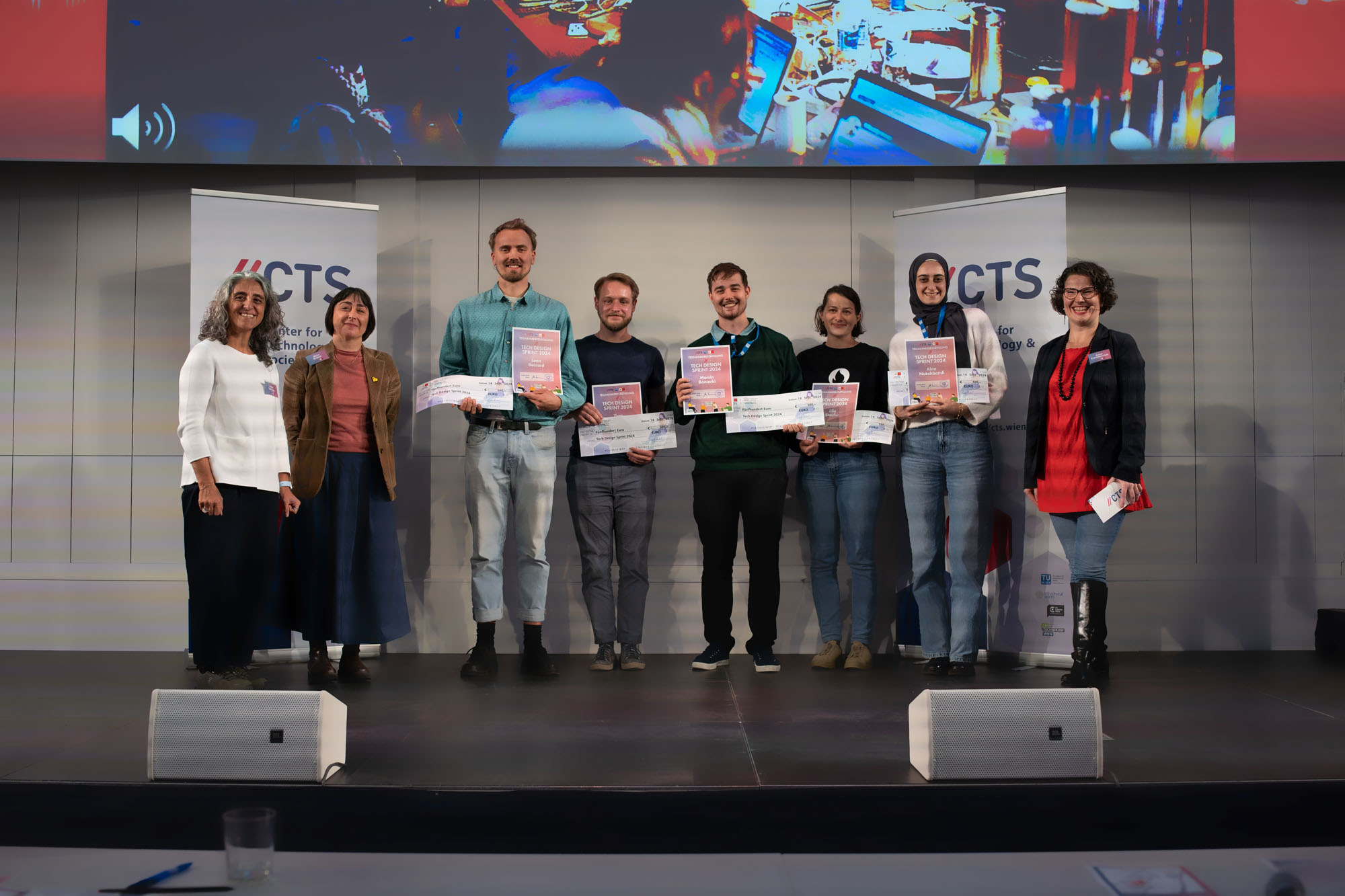
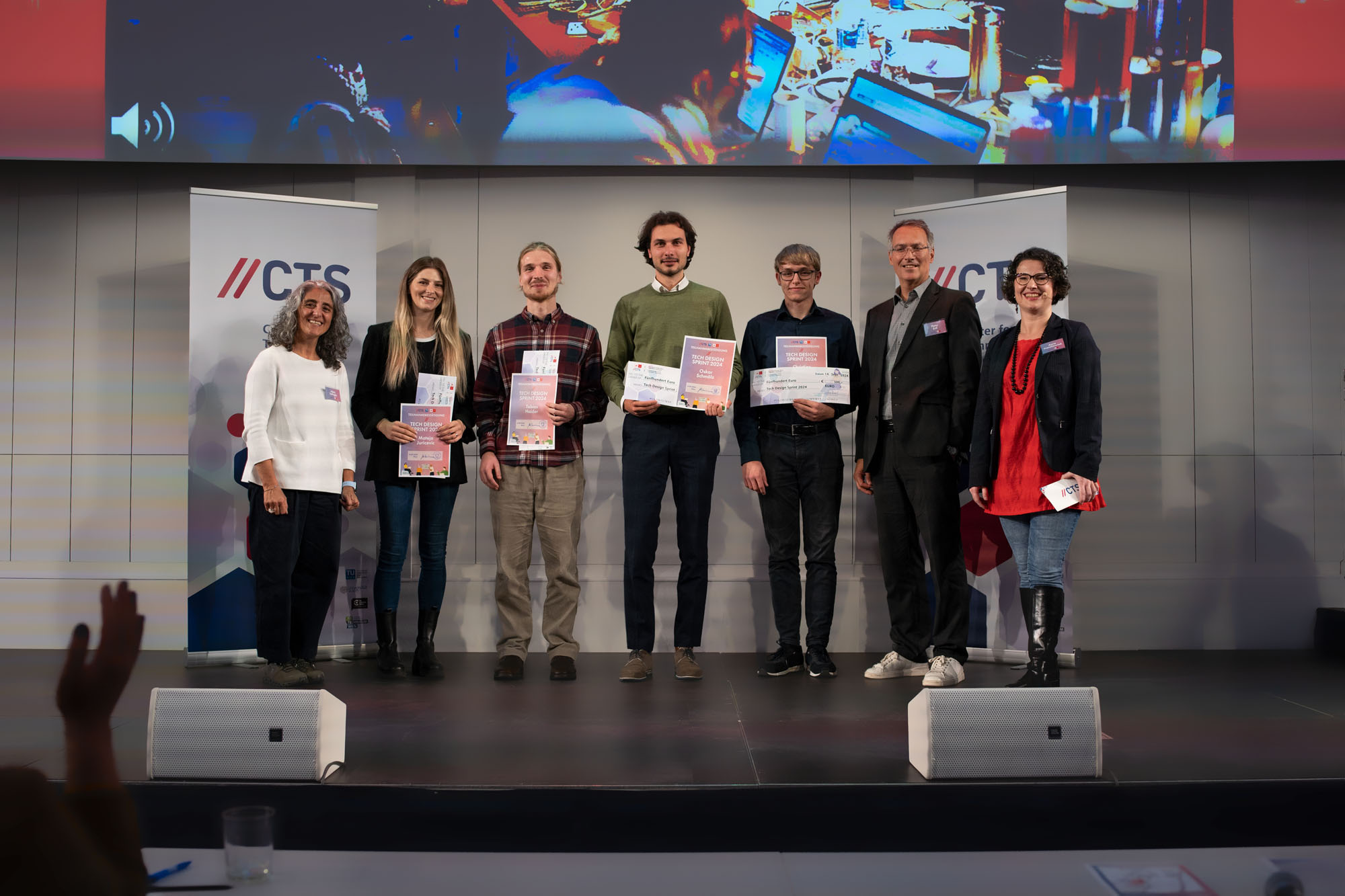
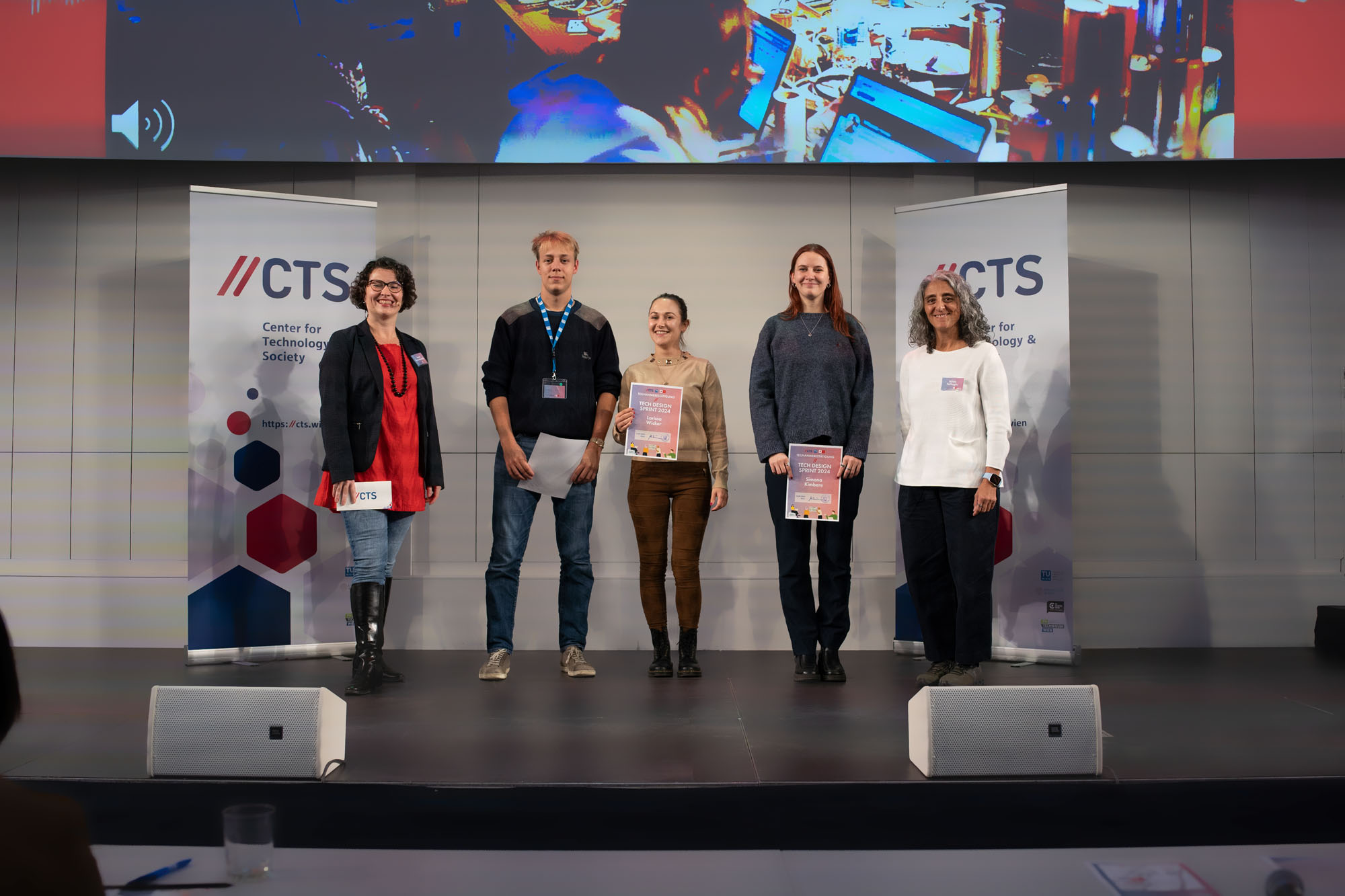
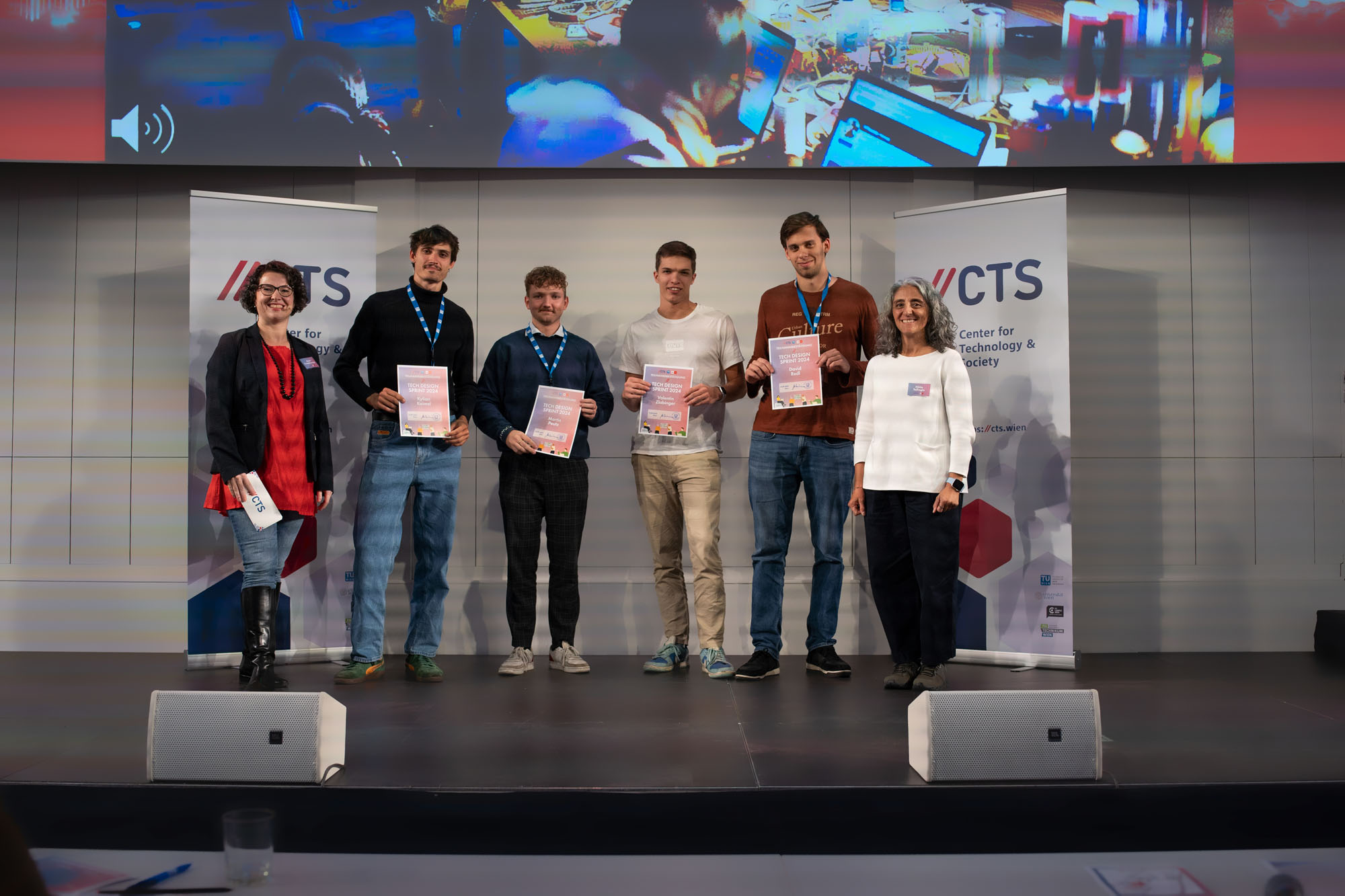
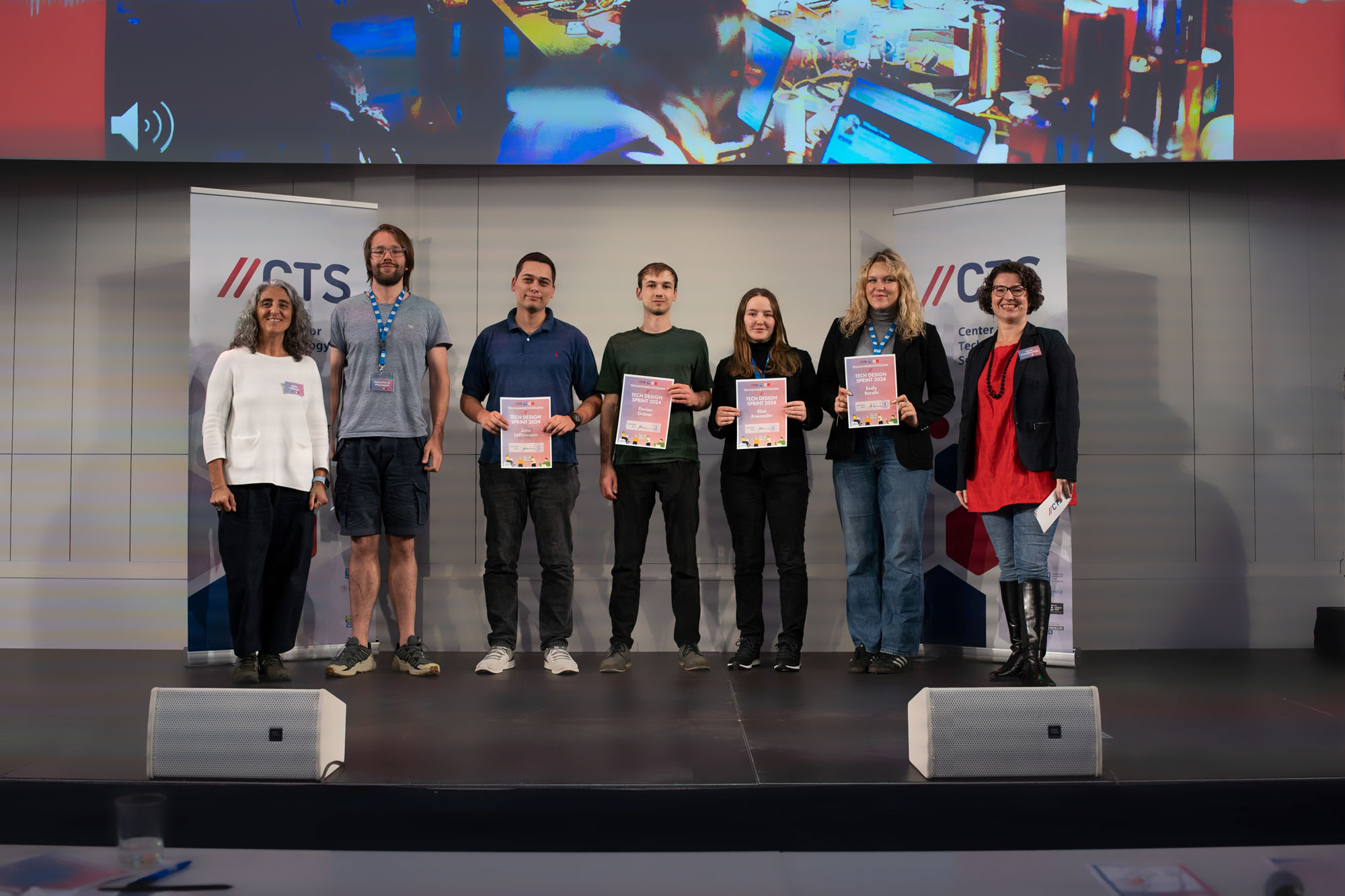
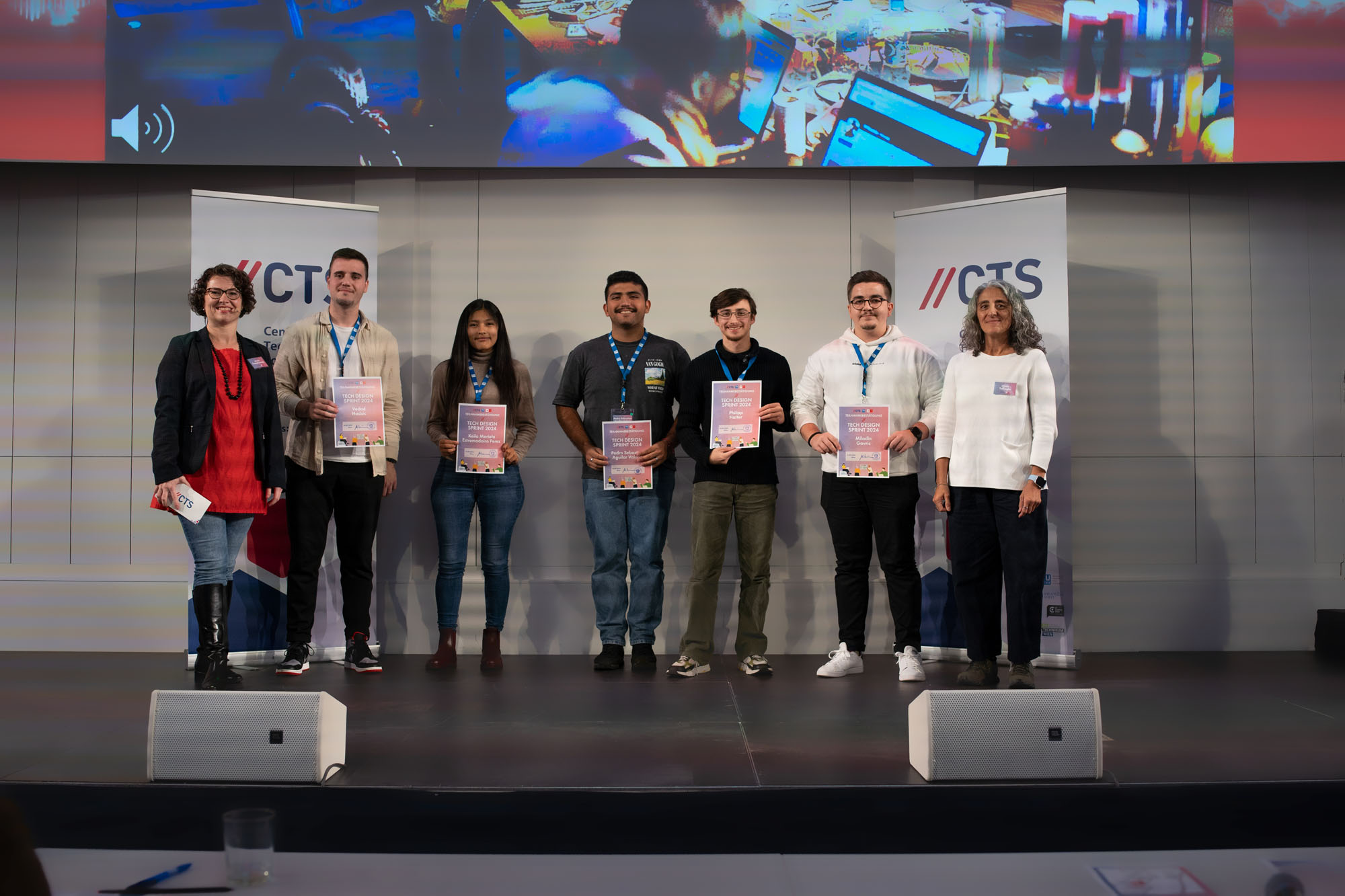
Additional images
